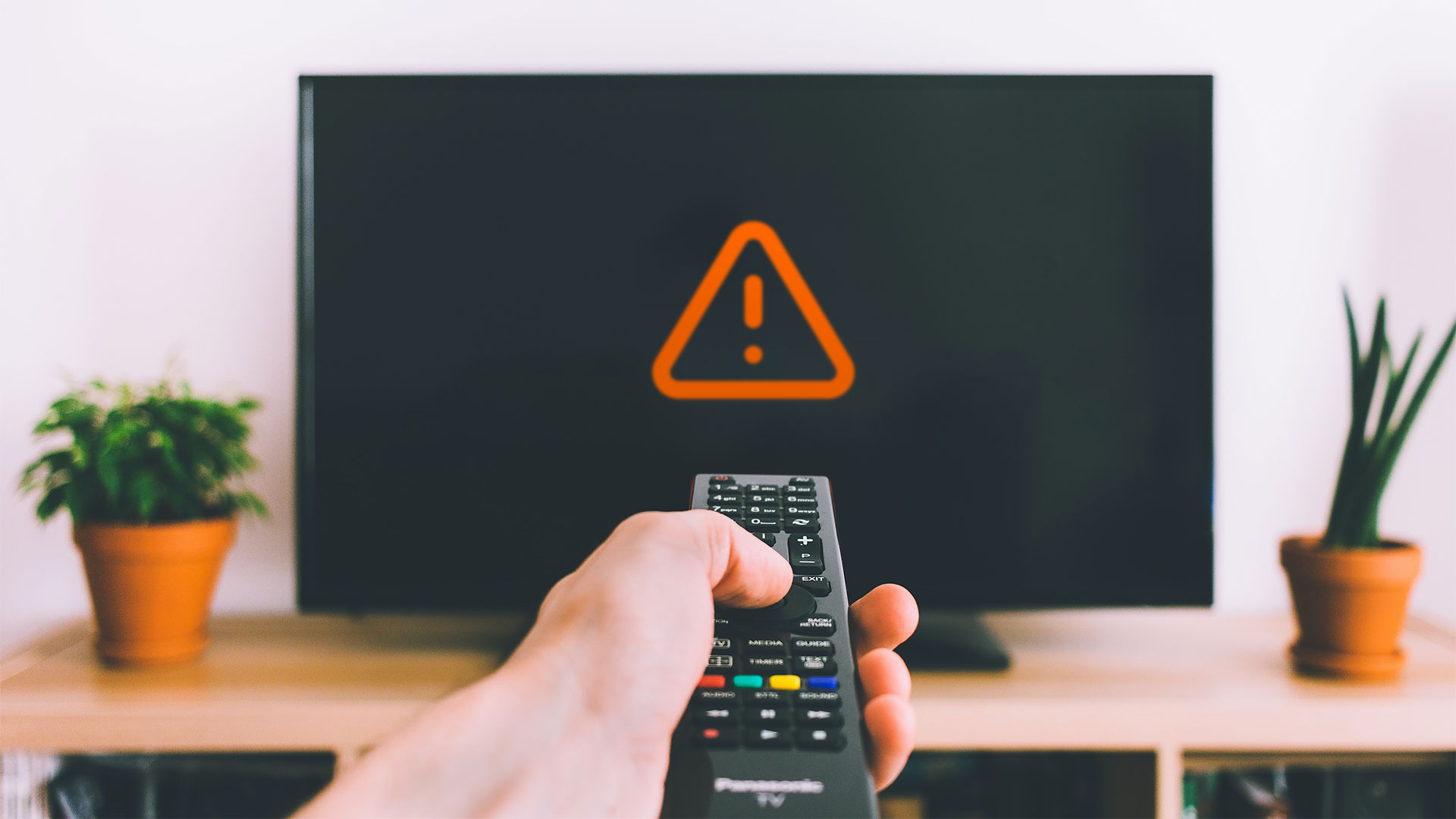TV scams are on the rise – here’s how to avoid them
Keeping your TV safe from cyberattacks

Sign up for breaking news, reviews, opinion, top tech deals, and more.
You are now subscribed
Your newsletter sign-up was successful
Our homes are increasingly becoming more vulnerable to cyberattacks with every new device we connect to the internet, including your TV. Hackers use various ways to gain access to a smart TV, including – as an example – through phishing scams that either send you a link to download malware onto your device, or trick you into handing your details over to what you think is a legit website or person.
Most recently, more and more people are reporting TV Licence scams in the UK, according to the official TV Licensing body. In just two weeks, the UK’s national reporting centre for fraud and cyber crime Action Fraud received 3,455 reports relating to fake emails appearing to be from TV Licensing.The fraudulent emails have a way of looking official, using what appear to be authentic logos with links that go to seemingly genuine websites.
In the US, the Better Business Bureau’s (BBB) Scam Tracker also received a surge in reports about TV scams earlier this year. The industry watchdog issued an alert in February warning of disingenuous pop-ups that were appearing on smart TVs and telling their owners they had a problem with their device or subscription. The scams aimed to gain access to personal account information through dodgy websites or pretending to be customer service agents from a not-so-legit company and asking for remote access to your device.
While most companies do a good job of safeguarding their customers from any suspicious malware or software vulnerabilities – just this week Amazon’s latest Fire Stick TV update to its streaming device patched three important security flaws – they can’t always protect them from being targeted by scammers so it’s important to stay vigilant. But you have to know what to look out for.
TV scams to look out for
It doesn’t matter which TV you own, you could have one of the best TVs of 2023 or even one of the world’s best streaming devices and still be at risk. After all, online scams have been around for a long time now, and there's always something new cooking.
It seems like every year they get more sophisticated than before too. Some types of online scams have even been around for so long that they have gained notoriety – ‘the Nigerian prince’ was one of the very earliest cons to fool people on the internet. Known as an advance fee scam, it worked by convincing a victim to hand over money in anticipation of a higher return.
When it comes to scams targeting your TV, the most common are those that look to gain access to your account, which can be approached in various ways. One of the most common, as mentioned above, is through phishing, whereby a scammer sends a message pretending to be a company.
Sign up for breaking news, reviews, opinion, top tech deals, and more.
These messages – whether it be an email, phone call, text message or letter – often say that there is a problem with your account or that you need to update information but more often than not they’re out of the blue, which is usually one of the first signs to be cautious.
Scammers are finding new ways to steal personal information and money though. As mentioned above, pop-ups are now becoming another way to target people as well as through QR codes. Some TV services make it easy for you to log in on your TV by scanning a QR code on your phone.
But Sky reported in April that it had noticed an increase in some customers using third-party QR scanner apps that redirected customers to third-party sites instead of where the code should take you. The network issued a warning, advising its customers to only use their phone’s built-in camera app to scan QR codes on Sky pages, or to otherwise search the URL in a browser. There's no need to a download a potentially malicious 'QR scanner' app.
How to keep your TV safe
There are a few ways to protect your TV from being the source of a scam. Here are three simple ways to make sure you don’t get caught out and to help make sure others don’t either:
1. Don't give away personal details
There aren’t many instances where a company will require you to hand over extra details about yourself or pay ‘urgent’ fees outside of a subscription arrangement or payment plan.
As a result, if you receive a message, whether it be via a letter, text, email, phone or even through a pop-up on your TV, from a company that is asking for this type of information, always refrain from handing over any details.
There are occasions of course where these messages may be genuine but more often than not, if a company does need to get in contact with you about your account, you will be able to check its legitimacy. Speaking of which…
2. Check and verify the authenticity
Many online scams are successful because they have a knack for appearing legit but there are ways to spot them. No matter the type of correspondence, if it has a mistake or error in it then it’s always best to be on the side of caution.
Be cautious of any messages that have spelling, grammatical or punctuation mistakes, especially if they aren’t personally directed to you. Anything that says things like ‘dear customer’ or ‘to whom it may concern’ should be considered very carefully – if the company knows your name, why isn't it using it?
There are exceptions to this where companies do in fact send messages that aren’t personally addressed to their customers (these are usually automated anyway). In these scenarios, take extra care to go over details.
Checking the email address or phone number is always the best place to start. You can do this by searching it on Google or Bing or DuckDuckGo or whichever search engine you tend to use.
3. Report any suspicious activity
If you do identify a suspicious email address, phone number, website or company, then there are ways to report this. It’s worth taking the time to report the details of a scam as you can help others not get caught out in future.
If you’re in the US, the Federal Trade Commission (FTC) has a website that offers various ways to report incidents. For those based in the UK, the National Cyber Security Center also has a website with loads of advice as well as a way for people to report an online scam.
Stop, check, ask
Using cybersecurity software, keeping software up-to-date and protecting accounts with multi-factor authentication (if it’s available) are other steps you can take to protect your devices. But the most important thing to remember when avoiding TV scams is to stop, check and ask.
Don’t ever give away personal information until you’ve had time to check and authenticate who you are speaking with. And whenever in doubt, make sure to ask as well as report any suspicious activity to official sites so that you can help others protect their TVs too.

Amelia became the Senior Editor for Home Entertainment at TechRadar in the UK in April 2023. With a background of more than eight years in tech and finance publishing, she's now leading our coverage to bring you a fresh perspective on everything to do with TV and audio. When she's not tinkering with the latest gadgets and gizmos in the ever-evolving world of home entertainment, you’ll find her watching movies, taking pictures and travelling.